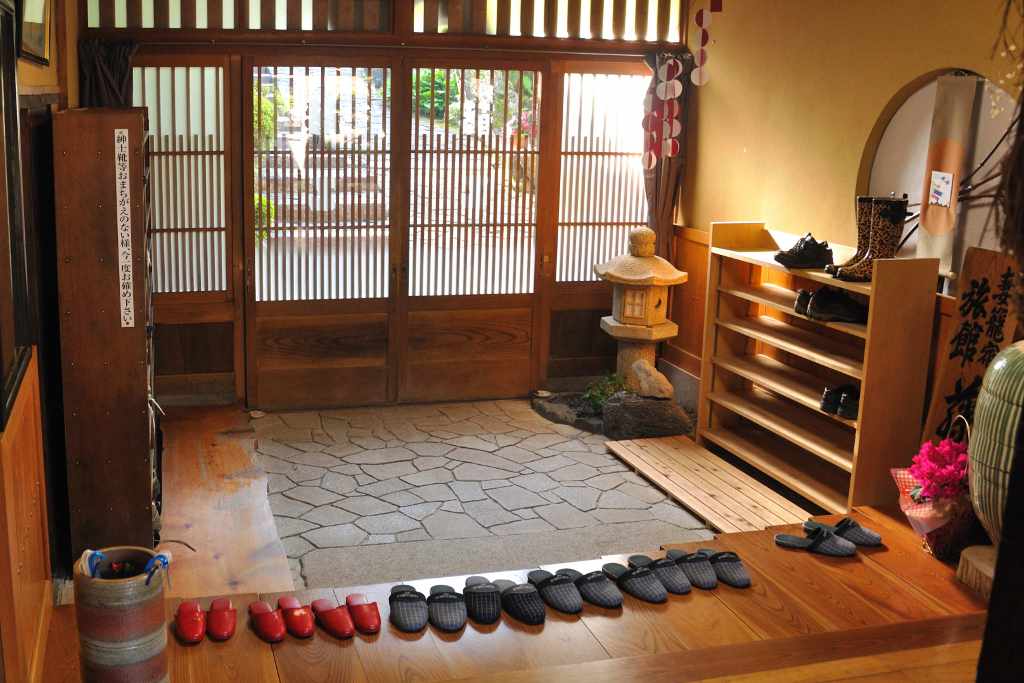
Despite the westernization of many aspects of the Japanese home, the entrance foyer or ‘genkan’ as it is known in Japanese, is a traditional space with strong cultural significance, and together with the Japanese bathroom is still an important feature in modern Japanese homes.
The genkan is something between a porch and a residential foyer or lobby, and is traditionally considered to be ‘public space’ or before entry into the house proper. It traditionally served as a formal reception area for visitors or callers to wait to be formally greeted, and to this day, it is customary for delivery people to step freely through the front door and into the genkan, waiting there to be met and ushered further inside.
In older homes, this public space might feature a cherished scroll, ikebana (flower arrangement), or ceramics designed to leave a favorable impression on the waiting visitor.
The change in height from the genkan, stepping up and into the house is of particular cultural significance. At this point shoes are removed, changing into inside slippers; an act which leaves the outside dirt behind, both literally and figuratively.
Just about every genkan will have a shoe closet, called a “getabako” in Japanese. Residents will store their shoes in this closet but guests will usually just put their shoes together and point them toward the door. This way they will be ready for you when you leave, and is generally considered to be the correct etiquette. Many genkans will also have an umbrella rack and hooks to hang up coats and jackets, similar to a western mud-room.
Another feature of the genkan is its practical use as an ‘airlock’, separating the heated inside rooms from the colder (often unheated) front entrance. Many Niseko chalets merge the Japanese genkan with the North American mud room / ski room for a grand yet practical ski entrance.
Although the ritual of removing shoes in the genkan can initially seem an awkward ritual, it is a custom that tends to rub off the longer one stays in Japan.
